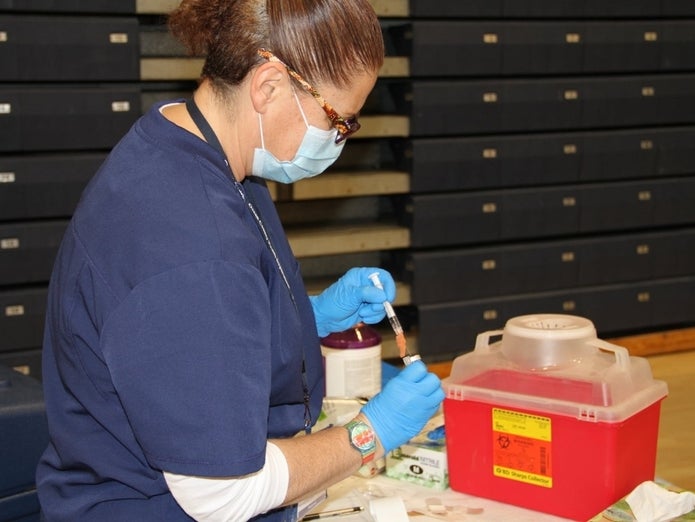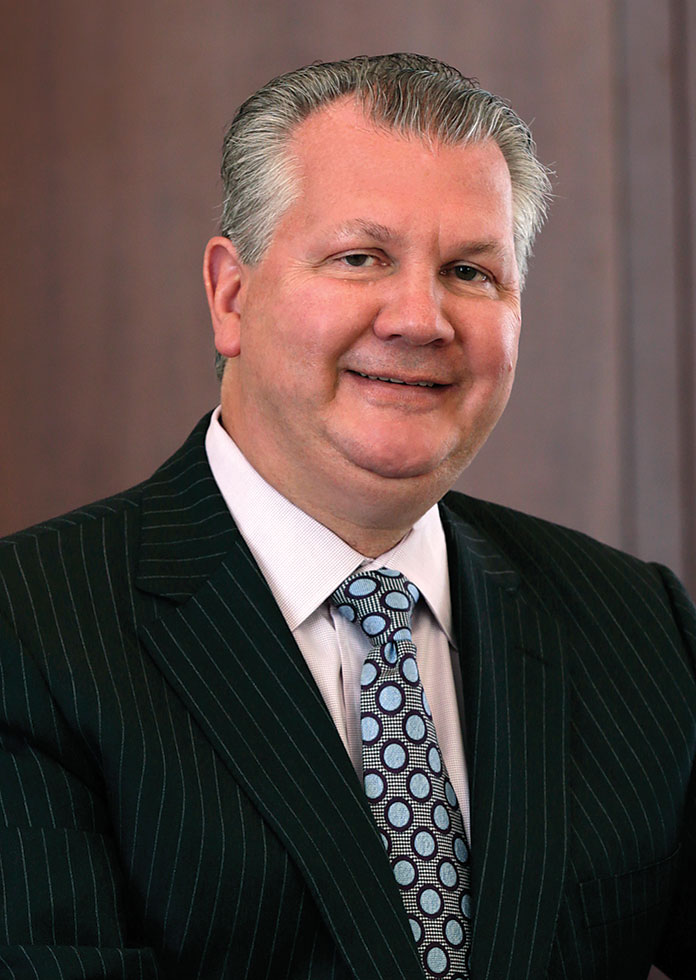
NEW JERSEY – Hackensack Meridian Health held a webinar designed to alleviate the fears and address the concerns regarding the COVID-19 vaccines.
The webinar was expected to be the first of several to address the subject of the safety and efficacy of COVID-19 vaccines. Among the topics covered during this first one was the research and development process.
The webinar, called “COVID-19 Vaccines – What You Need to Know” included Dr. Ihor S. Sawczuk who serves as chief research and institutional officer at Hackensack Meridian Health. He was joined by doctors Brian Roper, the Center’s internist and Bindu Balani, who serves as the Center’s infectious disease physician.
Another member of the panel was Hackensack University Medical Center Respiratory Therapist Reyna Berroa. She was one of the first team members to get the COVID-19 vaccine.
Following the panelists individual presentations, they responded to a barrage of questions from the 100 plus member virtual audience.
Dr. Sawczuk started off and explained some of the history of the vaccines’ development. “Six weeks from now we’re going to be in March and that is going to bring us about one year ago when this whole horrible pandemic reached New Jersey. March 3 or 4 is when the first patient was admitted to Hackensack Meridian Health Center and at that time, we really weren’t sure what we were doing.”
“We had hundreds of patients coming to us with COVID and we didn’t have enough tests to be able to determine in a timely fashion who was infected with COVID and who was not. We were scrounging around to get masks to wear. We weren’t sure we should be wearing masks. We were all worried about our protective gear. Our health care providers were stressed, our patients were dying,” Dr. Sawczuk said.

He noted Hispanics and African Americans “were devastated by this pandemic but at the same time that we were trying to determine what to do we were making progress. We were working with some new therapeutics and with companies who we had never heard their names before.” He said that new therapies had developed during the course of the year to provide antibodies to COVID patients.
Dr. Sawczuk said as the months went by things began to stabilize and discussion of vaccines began to prevent people from getting the virus. Clinical trials began on vaccine development and two firms in particular were working with a new type of technology. “Pfizer and Moderna were working with a technology called messenger RNA and they were taking parts of the genetic code and they were putting them within a lipid bubble and administering them to test volunteers.”
This led to trails to determine if the vaccines protect individuals from getting the virus and if they were safe to be administered. Thousands of individuals were part of the clinical trials and one of those trials was conducted at Hackensack Meridian Health Center “and I was first volunteer to participate and Dr. Balani was the principal investigator in that trial and I received my first injection at the end of August and my second at the end of September,” Dr. Sawczuk said.
“Then you wait and see if you have any symptoms or any potential side effects. The two vaccines from Pfizer and Moderna are effective. They are safe. They do have some minor side effects but the number of serious adverse effects are really quite low,” he added.
He said for those who feel the vaccines were rushed, he answered “the technology to develop these vaccines has been available for years. It just hasn’t been applied in a manner that we’ve seen now to get the products. We do have safe vaccines available for our populations.”
Berroa, a front-line worker who helps COVID patients on a daily basis and has seen the devastation of the pandemic spoke about how she felt receiving the vaccine. “I was one of the first five to receive the vaccine here in December. I just received my second dose last week.”
“The reason that I volunteered to receive it is that I wanted to represent my community not only as a Latino and African American woman but to show that to get the vaccine was safer than not to have the vaccine,” Berroa added.
She said she had experienced a small pain in her left arm the first time and a bit more pain there during her second inoculation. “There were some chills, body aches, a fever in the first 24 hours but I do have to say if that is what I choose to experience for 24 hours versus what I see day to day and the risk of me being infected and coming home to my household is way larger. The reason I chose to do that is that I want health not only here with my co-workers and the patients that we see, my family, my husband, my grandmother.”
“I feel it outweighs the risk and everyone should be vaccinated. I feel we are ready,” Berroa said.
Further details and commentary from this first webinar by Hackensack Meridian Health will be presented in a follow-up article. For additional information concerning the coronavirus vaccines, visit HackensackMeridianHealth.org.







